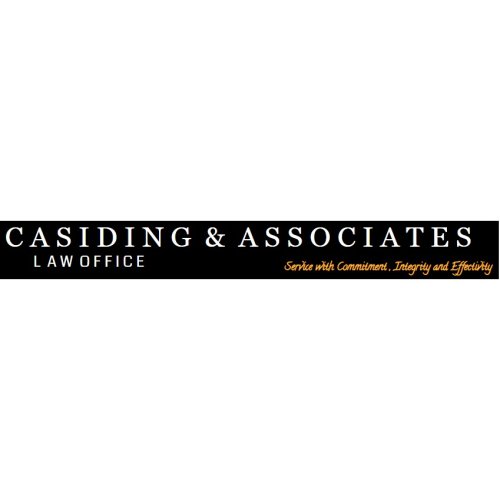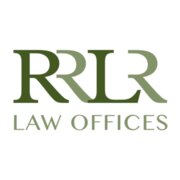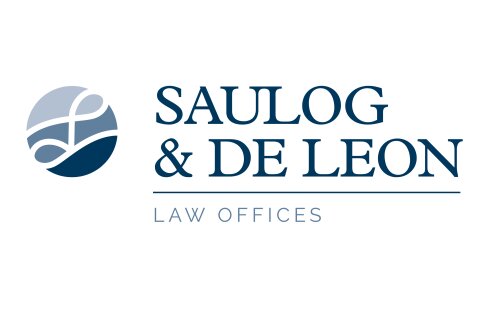Best Funds & Asset Management Lawyers in Makati City
Share your needs with us, get contacted by law firms.
Free. Takes 2 min.
List of the best lawyers in Makati City, Philippines
About Funds & Asset Management Law in Makati City, Philippines
Funds and asset management refers to the professional administration of investments such as mutual funds, pension funds, private equity funds, and other pooled financial products. In Makati City, which is recognized as the financial hub of the Philippines, funds and asset management is a prominent field that requires compliance with strict local regulations overseen by agencies like the Securities and Exchange Commission (SEC) and the Bangko Sentral ng Pilipinas (BSP). Law firms in Makati often help individuals, corporations, and institutional investors navigate the complex legal landscape to ensure their investments are structured and managed in accordance with Philippine laws.
Why You May Need a Lawyer
Seeking legal advice or representation in funds and asset management matters can be crucial for a number of reasons. Whether you are an individual investor, a fund manager, or representing a corporation, you may need a lawyer if you are:
- Establishing or registering an investment fund or asset management company
- Complying with local and national regulatory requirements
- Drafting or reviewing fund documents, contracts, and offering materials
- Dealing with disputes among investors, fund managers, or third parties
- Investigating allegations of fraud, misrepresentation, or mismanagement
- Restructuring funds or investments due to changing circumstances
- Addressing tax compliance or reporting issues
- Ensuring anti-money laundering (AML) and know-your-client (KYC) compliance
- Facilitating cross-border investments and addressing foreign ownership restrictions
Legal counsel can also assist in risk management, due diligence, and in strategies to protect your financial interests.
Local Laws Overview
The regulatory environment for funds and asset management in Makati City and the Philippines involves several key laws and government agencies:
- Securities Regulation Code (SRC) - Governs the registration and regulation of securities, including mutual funds and other pooled investment vehicles.
- Investment Company Act - Specifically covers entities engaged in investment funds such as mutual funds, ensuring protection for investors.
- Bangko Sentral ng Pilipinas (BSP) Circulars - Regulate trust entities and unit investment trust funds (UITFs) in the country.
- Anti-Money Laundering Act (AMLA) - Sets out obligations for due diligence and reporting to prevent illicit activities in the funds sector.
- Tax Laws - Investment vehicles are subject to various tax rules, which may affect returns and structuring choices.
- Data Privacy Act - Requires proper handling of investors' personal information.
Fund management companies and professionals must secure appropriate licenses and comply with disclosure, reporting, and operational standards mandated by these laws. Non-compliance can lead to penalties, fines, or even the suspension of operations.
Frequently Asked Questions
What is considered a collective investment scheme or fund in the Philippines?
A collective investment scheme or fund refers to any arrangement in which funds from several investors are pooled together for the purpose of investing in securities or other financial instruments, managed on their behalf by a professional fund manager.
Do mutual funds and UITFs have to be registered with any government agency?
Yes. In the Philippines, mutual funds must be registered with the Securities and Exchange Commission (SEC), while Unit Investment Trust Funds (UITFs) are regulated by the Bangko Sentral ng Pilipinas (BSP).
Can foreigners invest in Philippine investment funds?
Generally, foreigners may invest in Philippine mutual funds or UITFs unless the underlying investments have foreign ownership restrictions, such as certain real estate properties or media companies.
What are the main differences between a mutual fund and a UITF?
Mutual funds are regulated by the SEC and are structured as corporations, while UITFs are governed by the BSP and are operated by trust departments of banks. Both types pool money from investors to invest in a diversified portfolio of assets.
Are there investor protection mechanisms in place?
Yes. Regulatory agencies require periodic disclosures, independent audits, and the presence of custodians or independent third parties to safeguard investor assets. Dispute resolution mechanisms are also available.
How are investment funds taxed in the Philippines?
Taxation depends on the type of investment vehicle and the nature of the income. In general, income from mutual funds is exempt from income tax, but investors may be subject to final withholding taxes on certain payouts. It is best to consult a lawyer or tax advisor for specific guidance.
What legal requirements must fund managers comply with?
Fund managers must secure the necessary licenses, maintain minimum capital requirements, adhere to AML/KYC rules, submit regular reports, and operate in accordance with fair trading and disclosure laws.
What happens if a fund is mismanaged or commits fraud?
Affected investors may file complaints with the SEC or BSP, and the responsible individuals or entities can face sanctions, fines, and criminal liability. Legal action may also be pursued for recovery of losses.
Can an individual set up their own fund or asset management company?
Yes, but the process involves strict regulatory requirements including registration, submission of operational plans, capitalization, and compliance documents. Legal advice is highly recommended to navigate these complexities.
Is legal representation necessary for disputes involving funds or asset management?
Although not mandatory, legal representation is strongly advised for protecting your interests and ensuring your case is properly presented before regulatory bodies or courts.
Additional Resources
If you seek more information or need assistance, the following resources and organizations can provide helpful guidance:
- Securities and Exchange Commission (SEC) - The chief regulator of securities and investment funds in the Philippines.
- Bangko Sentral ng Pilipinas (BSP) - Regulates banks, trust entities, and UITFs.
- Investment Company Association of the Philippines (ICAP) - Industry group that can provide investor education and support.
- Bureau of Internal Revenue (BIR) - Offers guidance on tax compliance in investment activities.
- Philippine Deposit Insurance Corporation (PDIC) - Handles information on deposit and investment insurance limitations.
- Makati Business Club (MBC) - Can provide referrals and community connections for business and investment professionals in Makati.
Next Steps
If you need legal assistance regarding funds and asset management in Makati City, start by identifying the specific issue or question you have. It can be helpful to gather all related documents, such as contracts, fund prospectuses, and correspondence. Next, consult a licensed lawyer or reputable law firm specializing in securities, banking, or corporate law. They can offer expert advice, outline your options, and represent you in dealings with government agencies or in court if necessary. You may also contact the relevant regulatory agencies for preliminary guidance. For your protection and peace of mind, always confirm the credentials and expertise of any legal professional or consultant you engage.
Lawzana helps you find the best lawyers and law firms in Makati City through a curated and pre-screened list of qualified legal professionals. Our platform offers rankings and detailed profiles of attorneys and law firms, allowing you to compare based on practice areas, including Funds & Asset Management, experience, and client feedback.
Each profile includes a description of the firm's areas of practice, client reviews, team members and partners, year of establishment, spoken languages, office locations, contact information, social media presence, and any published articles or resources. Most firms on our platform speak English and are experienced in both local and international legal matters.
Get a quote from top-rated law firms in Makati City, Philippines — quickly, securely, and without unnecessary hassle.
Disclaimer:
The information provided on this page is for general informational purposes only and does not constitute legal advice. While we strive to ensure the accuracy and relevance of the content, legal information may change over time, and interpretations of the law can vary. You should always consult with a qualified legal professional for advice specific to your situation.
We disclaim all liability for actions taken or not taken based on the content of this page. If you believe any information is incorrect or outdated, please contact us, and we will review and update it where appropriate.

















